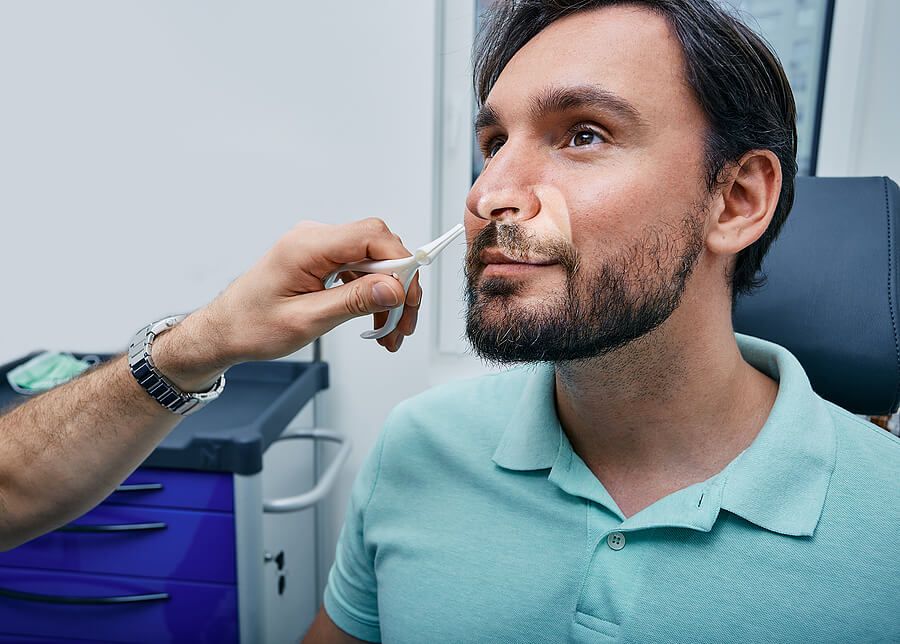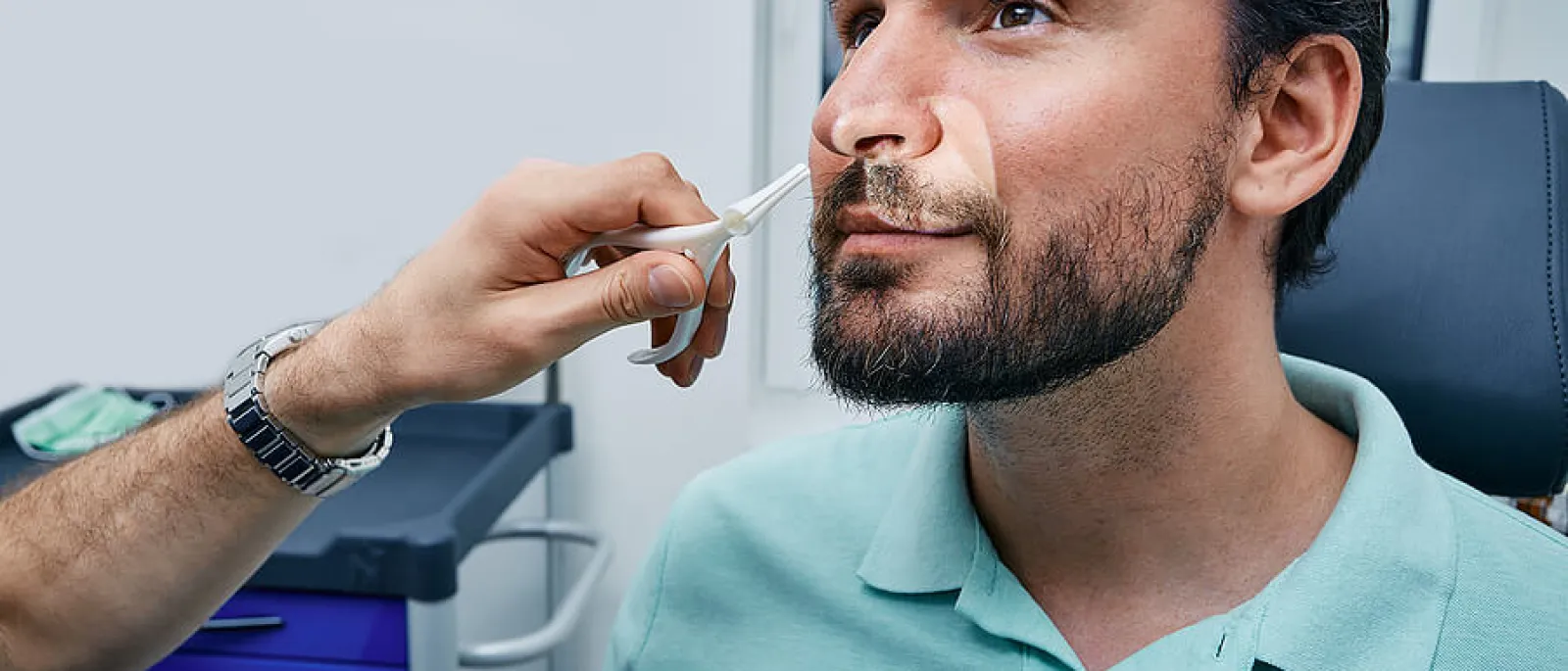Nasal discomfort is quite common, affecting millions of people a year. The symptoms can range in severity from nasal congestion and pressure to facial pain, headache, and even what feels like a toothache. In many cases, a combination of over-the-counter (OTC) medications, saline rinses, and nasal irrigation can help soothe the discomfort and ease the symptoms. However, that's not always the case for everyone. Relief may be temporary.

As with any health concern, it's best to consult a medical professional for an accurate diagnosis and determine the most appropriate treatment. A physician can greatly assist even before using something like a nasal spray. Various potential conditions could be the source of the nasal discomfort, and long-term relief might only be found in a minimally invasive nasal procedure.
What Is a Minimally Invasive Nasal Procedure?
A minimally invasive nasal procedure is generally an in-office surgical solution involving much smaller incisions than an "open" surgery, shortening recovery time. Seeing that these solutions are often considered minor, general anesthesia is rarely, if ever, used, making them a safer option than traditional surgery.
What Are the Options?
Several nasal procedures would fall under the "minimally invasive" category, with some of the most common including balloon sinuplasty, nasal polyps surgery, septoplasty, and endoscopic sinus surgery. Let's get into further details on what you might be looking at:
- Balloon sinuplasty. Balloon sinuplasty is an alternative surgical technique where a doctor would use an endoscope to guide a balloon-like catheter into the sinuses. Once in position, the catheter is expanded to open and clear the nasal passages. When dilation is complete, everything is removed, and you can usually go about your regular activities in about 24 hours.
- Nasal polyps surgery. Sometimes, nasal polyps surgery entails nothing more than a balloon sinuplasty. If you require nasal polyp removal, the best choice may be endoscopic sinus surgery, where a doctor would use a microdebrider to remove the polyp or polyps from the treatment area. Healing will take three to five days, with noticeable results occurring about two to four weeks after the surgery.
- Septoplasty. Your doctor may recommend a septoplasty if the nasal discomfort results from a deviated septum. Septoplasty is another minimally invasive nasal procedure where a doctor changes the shape of your septum — with either small incisions inside the nose to access the septum or an open surgical procedure. If the latter, it would still be considered septoplasty, not rhinoplasty. Septoplasty vs rhinoplasty is more about the goal. Rhinoplasty focuses on improving the outward appearance of the nose, whereas septoplasty focuses on improving its functionality. That's why septoplasty before and after has nothing to do with the shape of your nose. It's highly unlikely that you'll see much of a difference.
Arriving at the Right Solution
Though this should go without saying, the right option will depend largely on the medical condition being treated. However, it's still important to choose the right solution for you. Consider the following when arriving at a decision:
- Discuss the treatment options. Remember that there are different ways to manage nasal conditions. Symptoms can be treated with antibiotics, corticosteroid sprays, allergy medications, ointments, saline sprays, etc. Know your options before making a decision.
- Weigh the benefits against the risks. No surgical procedure is without risk, even minimally invasive ones. Ask about the risks involved with the recommended procedure. Inquire about the expected results, success rates, length of recovery, length of treatment, follow-up care, potential side effects, and whatever other questions you might want answered. Think of it as creating a pros and cons list that you can refer to before deciding which direction to go.
- Factor in your lifestyle. One factor that many patients don't always consider is how a given treatment might impact their lives — both good and not-so-good. Maybe going the OTC route, though fairly easy, will affect your day-to-day activities in the long run. Perhaps a surgical procedure isn't fully covered by insurance and may not be tenable at this point.
Sometimes, the best treatment will be nasal surgery. The doctor will talk you through what to expect. Ensure you get all your questions answered so you feel comfortable with the option best suited to your particular condition.
If you have questions about treatment options and whether a minimally invasive nasal procedure would be best for your medical condition, the ENT of Georgia South team would like to hear from you. Contact us today.

